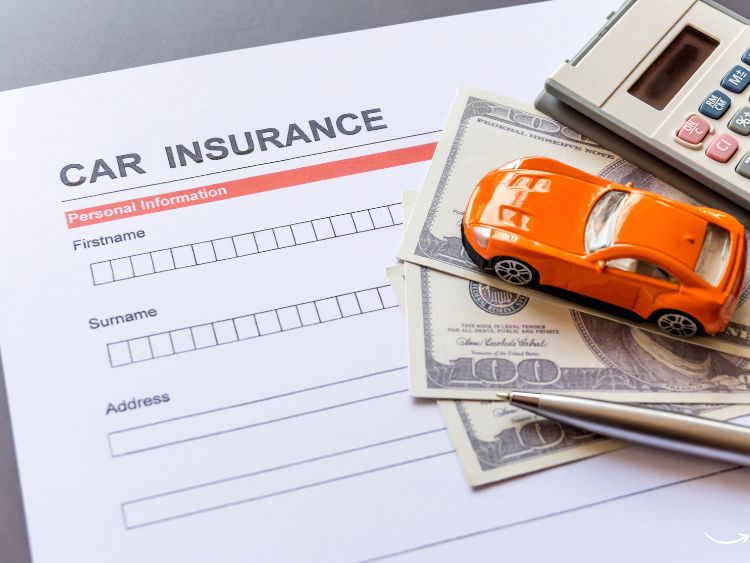What is Rental Car Insurance?
Rent-a-car insurance covers you for any damage that may happen while renting a vehicle. There are three types of basic coverage such as theft, damage and third-party coverage.
- Damage insurance limits the amount the rental company is able to charge you for any repairs needed.
- Theft insurance protects you in the event that the vehicle is stolen or damaged in an attempt to steal.
- Third-party coverage covers you in the case that your car rental is responsible for injuries or property damage to anyone else.
What is the process of insurance for rental vehicles?
A lot of rental cars come with some type of rental car insurance. Even if it is an entry-level plan, the majority of rental cars come with some type of insurance. If there’s an accident, you’ll be required to pay an agreed amount, and the company will pay the remainder. You can reduce the amount that is overpaid by making an increase of a few percent to the premium of the policy.
Be sure to read the fine print carefully to ensure that you know what is covered for and what you aren’t. A collision damage waiver could protect bodywork damages, but not window repairs.
When do I require insurance for my car rental?
Insurance for car rental is a good idea. You never know when you may need it. Many people rent cars while on vacation or travelling. Accidents can be caused by a lack of knowledge about roadways and traffic laws.
If your auto insurance policy covers rentals, you should not be required to purchase additional coverage. Before purchasing any additional coverage, make sure you check your current policy.
The Rental Agent will ask you to purchase insurance for your rental vehicle as you walk up to the Rental Car Counter. If you don’t, they will require you to initial next to each insurance policy you decide to not purchase. The choices you make within these minutes could have a significant impact on your financial position. Deciding whether you should purchase auto insurance at the Rental Car counter before you arrive will prevent you from suffering a significant financial loss or wasting your money on insurance that you already have or don’t need. One of the questions that we receive the most frequently in our role as auto insurance professionals is “Do I have to purchase the auto insurance offered at the counter for rental cars when I rent a vehicle?” The answer is probably. You may be able to protect the rental car using insurance policies you already own or you may decide you’ll need to purchase additional insurance. We will provide you with all the details you require to assist you in making these crucial decisions. If you are renting a car There are a variety of ways to secure coverage without Having To Purchase Coverage At the Rental Car Counter.
Transfer Coverage From Your Current Auto Insurance Policy. If you lease a car you will need to bring the insurance identification. When you rent a car, you should have your insurance card. It may be required by the car rental company. This can help you avoid hassle and time in case you are pulled over by police in your rental car. The deductibles and coverages of your insurance policy be transferred to the cars you rent as long as you’re not renting the car for business purposes or renting in another country. To determine if you have Property Damage Liability, Comprehensive or Collision coverage, look up the declarations section on your auto insurance policy. Keep the track of your Property Damage Liability Limit as well as your Comprehensive or Collision Deductible. If you are renting a car in an other country, look into purchasing insurance from the counter where you rent your car. Most auto insurance policies for personal vehicles only protect their owners within the country in which the policy was originally written.
Damages to your rental car are covered under the property Damage Liability portion of your personal auto insurance policy if you are renting the vehicle solely for pleasure. If you’re involved in an accident involving your vehicle and your vehicle is repaired, your insurance policy will be able to cover the cost of repairs. Damages to the replacement car that you rent are covered under the Comprehensive and Collision coverage part of your personal auto insurance policy. If you cause damage to the rental vehicle the car, you’ll have to pay the deductible.
Rent-a-Car Insurance – A lot of credit cards provide rental car insurance as a benefit. But the reality is that the coverage that these cards offer usually pays only when your personal auto insurance policy limits have been exhausted and only if you used their card to cover the total cost of the rental. Credit card protection levels change every day, so it’s important to call your credit card company to inquire about the rental car coverage. When you talk to the credit card company representative, ask them for information about Liability, Comprehensive and collision coverage for rental vehicles. The information you request should be in writing, since it is possible to get multiple answers from one credit card company. Be sure to inquire about any restrictions. The majority of credit cards don’t cover luxury or exotic automobile rental.
Purchase a non-owned car Insurance Policy
If you frequently rent cars but you do not have an auto insurance policy of your own, you could save yourself some money by buying the “Non-Owned Auto” Liability policy. The policy offers the same kind of security that the Excess Liability policy offered at the rental car counter. These kinds of policies typically cost around $300 a year and will cover you for driving any private passenger automobile. The policy will only provide protection for Bodily injury as well as Property Damage Liability. The policy doesn’t protect against damage to your car rental, so you will need to either purchase the Collision Damage Waiver (or use one of the other coverage options we mentioned earlier).
If you’re unable to obtain coverage using any of the methods described in the previous chapter you should seriously consider purchasing coverage through the Rental Car Counter. Since they earn an amount of money for each sale, it’s difficult to obtain accurate advice from a rental car representative on these types of coverages. We have all the information you require.
Collision Damage Waiver (CDW)
This type of protection is also referred to as the loss damage waiver (LDW) by some rental car firms. This protection is sometimes called insurance, however, it’s not. It is in fact a waiver of liability. When you purchase this protection the rental car company waives the liability for damages or theft of the rental car. If something happened to the car you would simply fill out a simple claim when returning your car, and the company that rented it will pay to repair or replace the car. The price for this insurance usually ranges from $15 to $25 depending on where you’re renting.
This insurance could be cancelled in the event of an accident that occurs when you are breaking the law. This could include speeding too fast and driving off the road, or driving drunk, therefore be cautious when you are driving a rental car or any other vehicle in general.
If you have an amount that is less than $10,000 in Property Damage Liability coverage you might want to consider buying the Collision Damage Waiver because this minimal amount might not be enough for repairing or replacing the rental car. If you are found responsible for damage to another person’s property or vehicle, rental car companies may claim for lost rental income. These are the main factors that should be considered when deciding if you should purchase the Collision Damage Waiver.
Another benefit to this insurance is that it does not have a cost deductible. This can come in handy should you be involved in an accident covered by your insurance policy, and you’re leasing a replacement car as your vehicle is being repaired. In this case, that any damage to the car rental are covered under your Comprehensive or Collision coverage which means that you would have to pay the deductible.
- Excess Liability Car rental companies are required by law in most states to offer the minimum amount of protection against liability for those who rent their cars however, this isn’t enough to protect your interests should you seriously harm anyone in an accident. The liability of your auto insurance policy will be transferred to the rental car. This ensures that you have enough coverage of bodily injury liability and property liability for damage. We don’t recommend buying this coverage. The coverage will be available once your auto insurance limits are exhausted. This price for this protection is between $10 and $13 dollars per day, for 1 million dollars worth of additional protection.
- Personal Accident Insurance If you or any of your passengers are injured during an accident, or as a pedestrian this insurance will cover your medical expenses and ambulance charges if necessary. If you reside in the “no fault” state, have health insurance or carry medical expenses coverage you likely already have this protection and don’t need to buy it from the car rental business. To determine whether you’re covered under your auto insurance or health insurance, look up the policy. If you file a claim for this kind of loss under your personal auto insurance will not result in an increase in price and if the loss is covered by another policy, there is really no benefit to buying it from the car rental company. This type of insurance typically costs between $2 to $5 per day dependent on the place you rent.
- P Personal Effects Coverage – This is coverage for theft of you or your passenger’s personal items such as camcorders, cameras or laptop computers. This coverage could also be covered under your homeowner or renters insurance, in the event that you have one, so you may not need to purchase it from the rental car company. But, homeowners and renters deductibles typically are at least $500 and all your belongings are not covered. To find out if you are covered, look up the declarations and exclusions section of your insurance.
One of the benefits of purchasing this coverage through the rental car company is that typically, you do not need to pay the deductible. When you return your rental car, you will must make a claim and be reimbursement for items that were taken. You will usually need to prove ownership of the items you claim were stolen by providing the rental car company with receipts or other evidence of ownership. Prior to purchasing this insurance it is recommended to ask the rental agent whether there are any restrictions. The cost of this protection is between $2 and $5 per day.
Rental Car Insurance Questions to Ask
What is the rental car insurance?
Rental car insurance is an insurance policy which protects you from incidents that happen while driving a rental vehicle. It is possible to be protected from damage or theft based on which policy you select.
Do I require insurance for my rental car?
Every car rental should come with the third-party insurance and damage waiver as a standard insurance policy to ensure that you are not forced to pay for the total cost of any damages to the vehicle. You can also add insurance to suit your needs.
When do I require insurance for my rental vehicle?
If you are renting a car, rental car insurance is required. If something goes wrong while you are renting the car and there are damages or other costs to pay for, you will only be able to file a claim if you had insurance on your rental vehicle prior to the incident. Rental insurance isn’t available to pay for damages once they’ve already occurred.
What is the equivalent N26 of insurance for rental cars?
Customers who have an N26 bank account can make use of their debit card to rent a car at select rental car companies. In addition to their banking benefits, Premium account holders automatically get mobility insurance. Metal account holders of N26 are automatically covered for rental car insurance whenever they hire a car abroad, and are protected for damage that exceed EUR20,000.
Is rental car insurance available for other drivers?
The best way to go is assume that the person who is named on the insurance policy is the only driver of the car rental. Although the members of your family may have comprehensive insurance coverage for their vehicles, it doesn’t mean they are protected for renting cars.
Additional Resource:
https://www.acko.com/car-insurance/
https://www.moneysavingexpert.com/insurance/car-insurance/
http://www.tdi.texas.gov/consumer/auto-insurance.html


